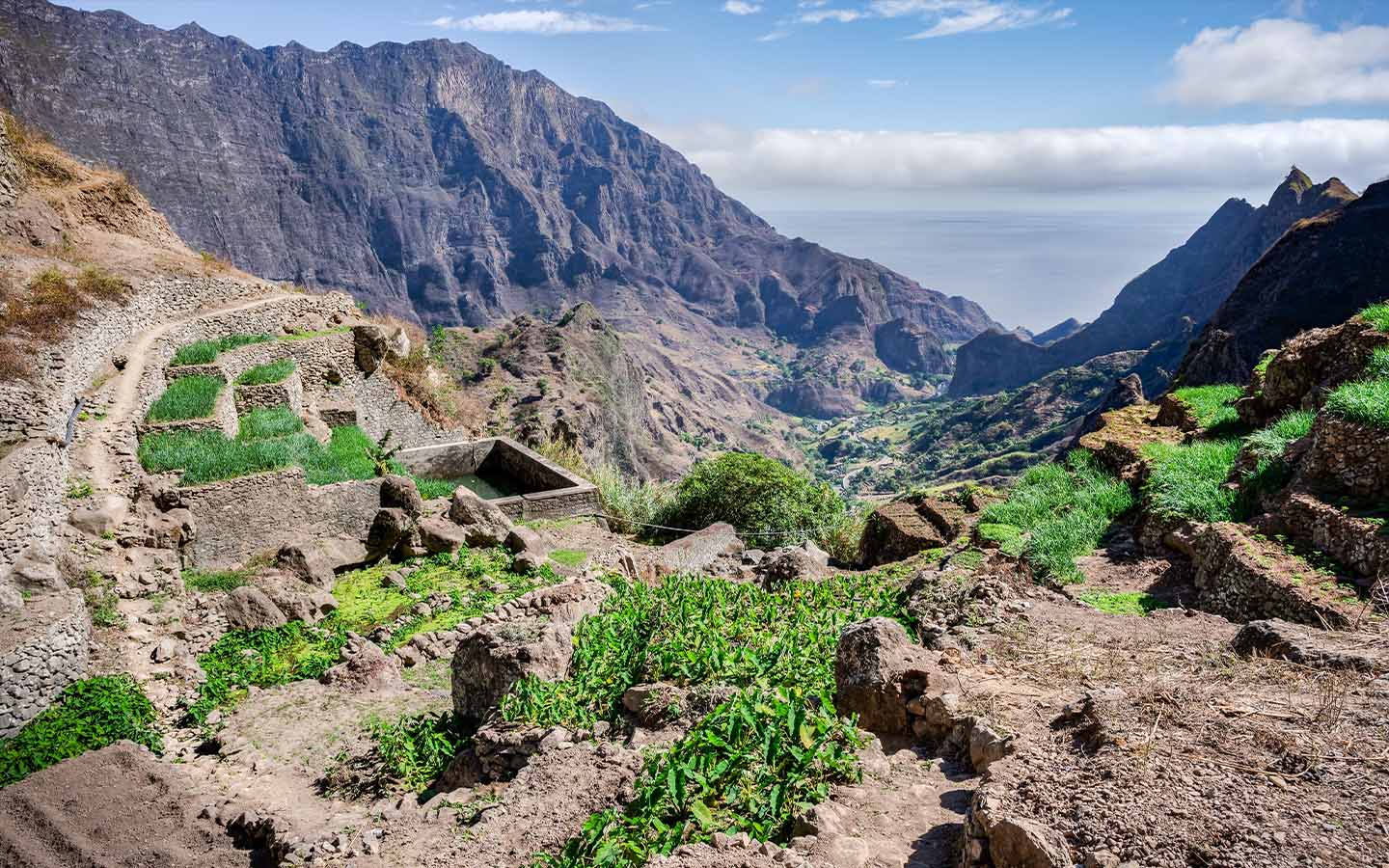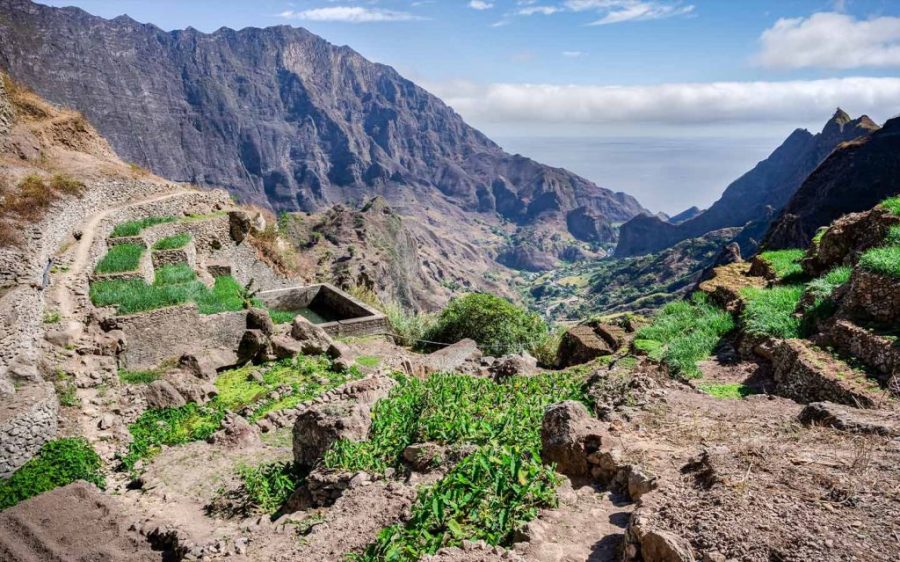Cabo Verde recently inaugurated the first phase of a major new programme to use desalinated seawater for agriculture, freeing farmers in the increasingly arid archipelago from depending on the rainy season.
The new seawater treatment plant in São Domingos will support up to 1,200 beneficiaries, increasing available water by 883,300 cubic metres annually. By using solar panels to power the desalination process, the plant will also be able to lower costs for farmers. Similar projects are under development on the islands of São Vicente, Santo Antão, Boa Vista and Maio, as well as a second plant on Santiago Island in Santa Cruz, which Prime Minister Ulisses Correia e Silva said will be “operational soon”.
Correia e Silva highlighted the importance of using freely available resources like seawater and sunlight to make irrigation not only possible but affordable. “This way, farmers are not exclusively dependent on the rainy season,” he said at the inauguration.
[See more: Cabo Verde begins rehabilitation of UNESCO site]
Valued at 42 million euros (US$46.69 million), the project is the result of cooperation with Hungary. Correia e Silva first announced the partnership back in October 2021, telling parliament that Hungary would provide Cabo Verde with two desalination plants under the financing line for the Water Mobilisation Programme for Agriculture (PMAA). The first desalination equipment arrived in 2022.
PMAA aligns with several Sustainable Development Goals (SDGs) outlined by the United Nations, including the eradication of poverty and hunger. Cabo Verde is particularly vulnerable to severe droughts, a vulnerability made all the worse by climate change, and food imported to the archipelago is often prohibitively expensive. PMAA seeks to not only improve agricultural production but to tackle food insecurity.
To this end, the government recently granted 35 hectares of free land to farmers and animal breeders in Cabo Verde. Increasing available land and water should help to create better conditions for sustainable agricultural and livestock development, improving food security and reducing poverty in the archipelago.






